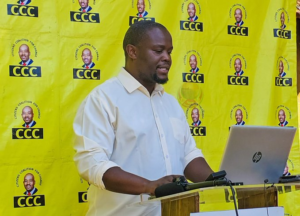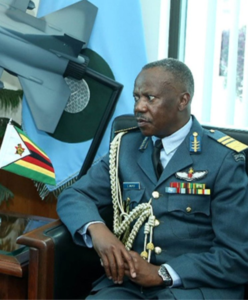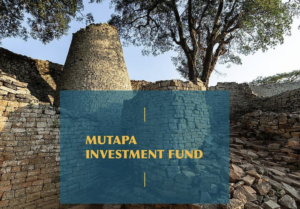500 DAYS OF INJUSTICE: THE SAGA OF ZIMBABWE’S POLITICAL PRISONER JOB SIKHALA

In a grim narrative that mirrors the distressing political landscape of Zimbabwe, the saga of opposition activist Job Sikhala has gripped the hearts and minds of many. Today marks a distressing milestone as Sikhala has now spent 500 days in incarceration, a period punctuated by the dismissal of his application for discharge. His alleged crime? Inciting public violence in a fervent protest against the brutal assassination of his colleague, Moreblesssing Ali, by a brute with strong affiliations to the ruling Zanu PF party.
This sombre milestone is emblematic of a larger, more disquieting narrative — President Emmerson Mnangagwa’s relentless authoritarian repression, reminiscent of Rhodesian eras. The political atmosphere in Zimbabwe currently holds an eerie resemblance to a past era, shadowed by the ghost of Rhodesian-like political and security situations.
The unabating wave of arbitrary arrests and detentions without trial has become a hallmark of Zanu PF’s repressive rule, echoing illegal practices from the dark days of Rhodesian governance. These actions pull apart the fabric of justice, which stipulates that every individual is presumed innocent until proven guilty. Sadly, this basic right, enshrined in the constitution as the entitlement to bail, has been blatantly disregarded in Sikhala’s case. His political detention for 500 days portrays a stark illustration of the eroding judicial independence and the suffocating grip of authoritarianism on the nation.
Sikhala’s story paints him as Zimbabwe’s key political prisoner, languishing in detention facilities that are described as being more overcrowded, dingy, and crushing than those existing during the colonial era. His ongoing ordeal is a stark reminder of the brutal realities faced by those who dare to oppose or criticise the authoritarian regime helmed by Mnangagwa and his Zanu PF comrades.
This tale of political vendetta is set against a backdrop of a nation grappling with escalating political and socio-economic turmoil that has been festering for decades. Zimbabwe’s populace continues to bear the brunt of a repressive regime, as they navigate through the quagmire of political intimidation, economic hardship, and an ever-narrowing space for democratic discourse and freedoms.
Furthermore, the dismissal of Sikhala’s application for discharge amplifies the alarm bells ringing concerning the state of democracy and rule of law in Zimbabwe. It is a poignant reminder to the global community about the lengths to which the ruling elite will go to suppress opposition voices and tighten their stranglehold on power.
In closing, the narrative of Job Sikhala is a dark testament to the lengths of authoritarian excesses in Zimbabwe under Zanu PF’s rule. The echoing cries for justice from the rusty chains of Sikhala’s unjust detention reverberate through the hearts of many, both within and beyond the Zimbabwean borders. As Sikhala’s ordeal casts a long, dark shadow over the nation, the cries for justice, freedom, and a return to democratic norms grow louder with each passing day. Through the grim tale of Sikhala’s 500 days of political detention, the world is reminded once more of the harsh realities faced by those daring to challenge autocratic rule in Zimbabwe.




Reading through Sikhala’s saga, Zondayi, one can’t help but feel a deep sense of injustice. His story is a testament to the courage it takes to stand up against oppression. Given the stark parallels you’ve drawn with past eras, what do you think are the most critical steps for Zimbabwean civil society and the international diaspora to take in order to catalyze meaningful change in the current political landscape?
“The narrative of Job Sikhala, as you’ve vividly outlined is not just a personal tragedy but a reflection of systemic failure. It raises an important question about the erosion of judicial independence in Zimbabwe. In your perspective, what role can legal and human rights organizations play in bolstering the fight for justice and democratic freedoms in such a repressive environment?